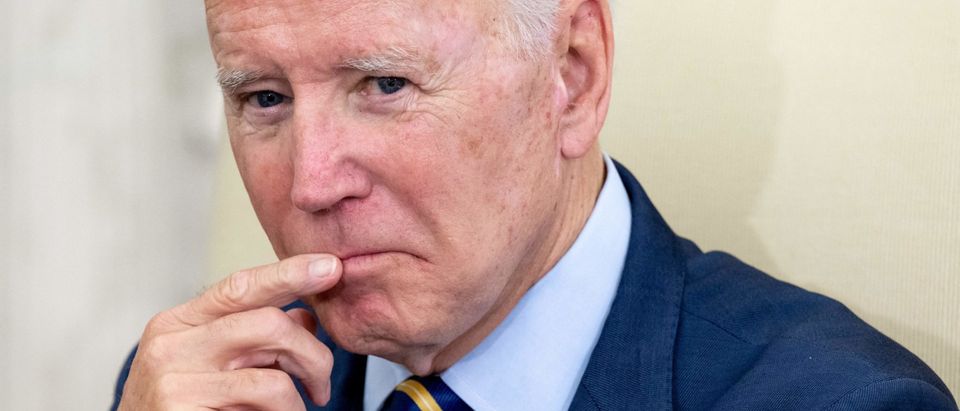President Joe Biden affirmed that U.S. troops would move in to defend Taiwan in the event of an “unprecedented attack” in an interview with CBS News’s “60 Minutes” Sunday evening.
Biden’s comments represent the clearest statement from the U.S. on possible military intervention if something like a Chinese invasion occurred, seemingly diverting from decades of U.S. policy to avoid committing fully to Taiwan’s defense, CBS News reported.
“Would U.S. forces defend the island?” CBS News correspondent Scott Pelley asked the president.
“Yes, if in fact there was an unprecedented attack,” Biden answered. (RELATED: China Sanctions US Defense Industry Tycoons)
The State Department subsequently clarified to “60 Minutes” that U.S. policy toward Taiwan has not changed, although CBS News did not specify whether the agency said Biden’s statements reflected existing U.S. policy.
“We agree with what we signed onto a long time ago,” Biden told CBS News. “And that there’s one China policy, and Taiwan makes their own judgments about their independence. We are not moving — we’re not encouraging their being independent.”
The U.S. and China agreed to the “one China policy” via the Taiwan Relations Act, three Joint Communiques and Six Assurances in the 1970s and early 1980s affirming Taiwan as a self-ruling island that remains a part of China. While the U.S. does not have formal diplomatic relations with Taiwan, it engages in an independent trade relationship and has committed to supplying Taiwan with defense articles and training necessary to assist Taiwan’s defense against a possible Chinese invasion.
However, the U.S. retains a longstanding policy of “strategic ambiguity” intended to keep China in the dark as to whether or not the U.S. would deploy troops to assist Taiwan in fending off the Chinese army, according to CBS News.
Pelley pressed for clarification from the president. “So unlike Ukraine, to be clear, sir, U.S. forces, U.S. men and women would defend Taiwan in the event of a Chinese invasion?” he asked.
“Yes,” Biden said.
.@SecBlinken: The world will see us continue to support the status quo in the Taiwan Strait and advance our shared goals throughout the Indo-Pacific. That is what the region expects of us: to be a steady and responsible leader. pic.twitter.com/X7w21PVvmK
— Department of State (@StateDept) August 5, 2022
The U.S. will “take every action that we can take, from the point of view of both deterrence and diplomacy,” to ensure the U.S. never needs to intervene militarily, a State Department spokesperson told the Daily Caller News Foundation. “Our entire policy is geared toward that goal.”
Biden has on at least three prior occasions intimating that the U.S. would involve its military if China attempted to retake the island, according to NPR.
In May 2022, Biden said that the U.S. would intervene militarily if China attempted to unify Taiwan with the mainland by force, CNN reported.
The State Department reacted in a similar manner, highlighting Biden’s later statement that “our policy towards Taiwan has not changed at all.”
Biden “reiterated that our ‘one China’ policy and our commitment to peace and stability across the Taiwan Strait, of course, remains. He also reiterated our commitment under the Taiwan Relations Act to provide Taiwan with the military means to defend itself,” State Department spokesperson Ned Price said.
“In short, there has been no change,” he added. He did not explicitly state whether a commitment to defend Taiwan with U.S. troops would constitute a change in policy, despite questions from reporters.
The White House did not immediately respond to the DCNF’s requests for comment.
This story has been updated with comment from the State Department.
All content created by the Daily Caller News Foundation, an independent and nonpartisan newswire service, is available without charge to any legitimate news publisher that can provide a large audience. All republished articles must include our logo, our reporter’s byline and their DCNF affiliation. For any questions about our guidelines or partnering with us, please contact licensing@dailycallernewsfoundation.org.


